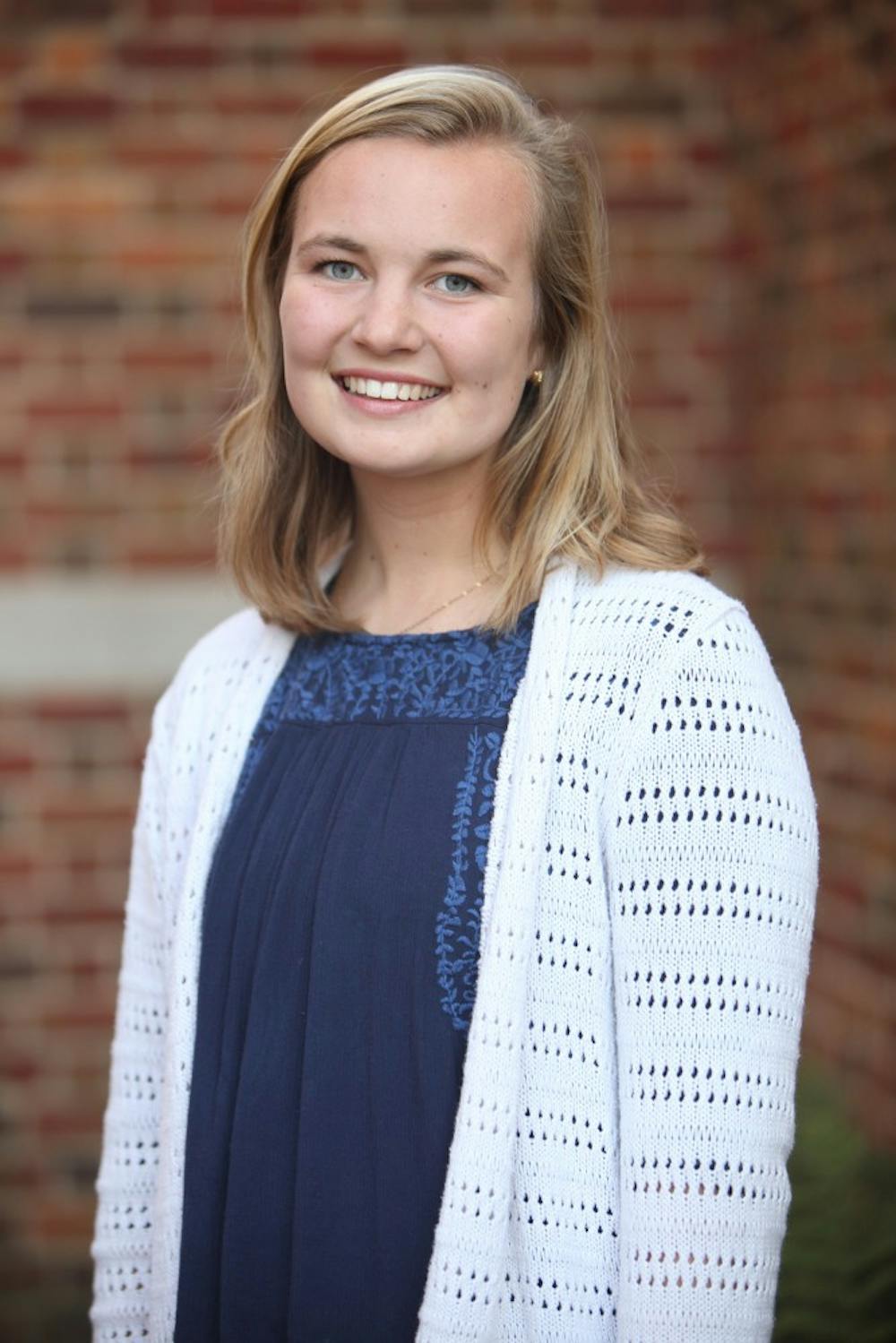The University could be located in the United States, in Virginia, in Charlottesville — it makes no difference. The University is a world of its own.
Aesthetically, Grounds is a breath-taking, beautiful world of Georgian red brick and white columns. Socially, it’s a vibrant world of people and experiences, colored by courageous communities. Intellectually, it’s a stimulating world of standards and statistics.
And while the University was carefully crafted around the idea of preparing us for the real world, we are students, working with a clear goal dangled in front of us — to be exceptional and to be experts. The only problem is this — while I’m being trained as a student, I’m not being trained to be a student.
There’s no doubt that the information I’m gaining is worth my tuition — if not priceless — delivered in the form of some extraordinary experiences I’ve been so fortunate to have. However, sometimes I feel as though the posture I’m adopting is harming my ability to learn as a human being. I’m worried that the hyperinflated importance, urgency and competition common within the University bubble begin to suffocate the characteristics desperately needed in this ever-changing world to continue growing throughout our lifetimes. We are being taught to polish everything, from our thoughts to our arguments to our skills — I want to remain moldable.
What prepares us to be good students at this University may not be preparing us to honestly learn life lessons. Perhaps, we need to push back a little bit on the mantras for success that might fail us outside of the world of grades. I want to consider the gap that may be present between what we are told to “do” and “be” as students and who we are “becoming” as people.
We can begin with a few phrases that echo throughout the halls of academic spaces, from New Cabell to Gilmer:
“Come prepared!”
Yes, it is good to plan, to work ahead when given the opportunity and to always arrive ready to contribute — wherever you may be going. Learning how to navigate commitments with responsibility and time management is a valuable skill. While this declaration may seem obvious, I believe the discrepancy is significant — you cannot come prepared to life.
Preparation and planning can be wonderful tools. However, they can also create an incredibly false sense of control. When we believe that we can control the future by preparing and planning for it, we live in a false illusion that eventually sends us spinning when circumstances change, and we find ourselves in chaos we couldn’t have predicted. We will have no plans. We will have no control. And we will believe that we have failed. While our decisions absolutely matter, we are not solely in control of what is to come. We will face obstacles foreign, unknown and unforeseeable — how we overcome will not be woven into the pattern of preparation we are taught, but rather in our ability to remain calm, hopeful and resilient in the face of perceived powerlessness.
“Be ready to take a side and argue your point!”
Day in and day out, we are expected to speak. We are taught again and again how to communicate our thoughts, ideas and beliefs — and to argue them without concession. We are taught to stand, to debate, to defend. Too often, we are doing so at the expense of being prepared to listen. In a world that champions expressive strength, we are losing our ability to listen actively, fearing someone would mistake our willingness to be informed by another as intellectual rather than moral weakness. In our aims to build sustained confidence, we are building deaf pride. In our pursuit to cultivate dedication, we have created hard-hearted defensiveness. We cannot foster conversation because we are being groomed to operate as if we are under ideological attack whenever we are challenged to expand our view or belief.
“Work on this individually.”
Finally, we are asked to succeed individually, but reality will be lived — flourishing or failing — in communities. We are graded on isolated performances when, for the rest of our lives, our ability to contribute to this world will never be taken out of the context of the work, ability and achievements of others. We are being taught to concentrate when we need to be conditioned to collaborate. How do we expand our view to include the well-being of all when we spend four years striving, earning and gaining for ourselves? We need to work together — not only for sentiment, but because we need to understand our dependency upon one another for the advancement of society, in every single facet. We need each other.
Surrounded by prestige, we do not often hear — unless said with a negative connotation — that we are in fact wonderfully average. Take a deep breath — you are average. You do not have it all figured out, nor do you have to. You are only one person, incredibly valuable but not indispensable.
There is freedom in seeing ourselves in modest proportion, largely unprepared for what’s ahead, with much left to learn, in desperate need of others to teach us. Perhaps it’s not about what we’re doing as students at the University — it’s about who we are becoming as human beings and about being humble students of our own lives.







